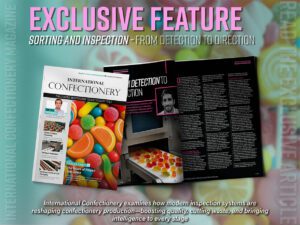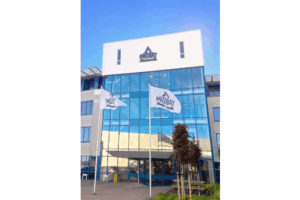Tate & Lyle’s sustainability programme has entered its next stage for stevia, a plant-derived and low-calorie sweetener, by enrolling farmers in China. The programme will support participating farmers in implementing best practices based on practices identified in its 2019 stevia life-cycle analysis later verified in its 2021 on-farm pilot.
Farmers enrolled will be come from Dongtai, Jiangsu Province, East China and Linze, Gansu Province and West China. Tate & Lyle have also partnered with environmental charity Earthwatch Europe working with Nanjing Agricultural University in East China to develop the programme, to ensure that the stevia industry will grow sustainability.
The expanded programme follows on from an on-farm pilot undertaken in Dongtai in 2021 which focused on the environmental and social impacts of stevia production based on the results of the life-cycle analysis done in 2019. Using these results, the 2021 pilot aimed to reduce impacts of fertiliser use and help farmers to understand soil health through regular testing. In the first year of the pilot, results saw promising reductions in nine impact categories including a reduction in greenhouse gas emissions and an improvement in metrics linked to local water quality.
“Supporting sustainable agriculture is front and centre of our plans to deliver on our commitment to be carbon net zero by 2050, to help our customers deliver on their carbon reduction commitments and to build a thriving farming commitment,” explained Nick Hampton, Chief Executive of Tate & Lyle. “Our stevia programme in China epitomises our purpose in action and is laying the groundwork for the sustainable development of the stevia industry.”
The pilot also found optimised fertiliser can positively influence stevia productivity leading to a greater proportion of desirable sweet components used to make stevia ingredients.
The cohort of farmers involved will implement practice changes piloted last year and trial additional changes to minimise their environmental footprint. The stevia agricultural sector is at a relatively early stage in its adoption of more sustainable practices, as the programme is helping to demonstrate positive environmental, social and economic impacts associated with changes.
“This partnership, through its hands on approach to trialling change and sharing knowledge, has engaged farmers, encouraging them to improve the sustainability of their growing practices,” said Maria Pontes, Director of Programmes and Partnerships at Earthwatch Europe. “We recognise the importance of supply chain resilience, so supporting growers and building a strong supplier network, while making a real change to the environment, is a priority.”
Participating farmers will be supported in pursuing sustainability-related vertification for their stevia through the Sustainable Agriculture Initiative Platform Farm’s Sustainability Assessment and have been encouraged to sign Tate & Lyle’s Stevia Supplier Sustainability Commitment, which is a pledge to reduce the environmental impact of stevia farmer. Farmers who sign the Commitment will be helped to understand their environmental impact better through sampling, assessments and participation in workshops.
“It’s very important to involve farmers in the demonstration of stevia slow-release fertiliser application as it helps them to better understand and believe in the practical technology and its value,” said Professor Luo, Project Lead from Nanjing Agricultural University in East China. “Participating farmers say that the optimised application of slow-release fertiliser technology … is making stevia farming easier.”
Stay up-to-date on the latest industry news and developments in our magazine.
Media contact
Editor, International Confectionery
Tel: +44 (0) 1622 823 920
Email: [email protected]








